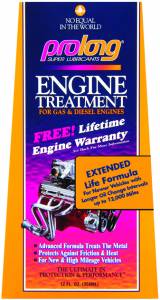Found this post from Lake Speed Jr. from another forum:
https://rennlist.com/forums/997-forum/897746-uoa-with-dt40-and-a-question-or-two-3.html#post12667565
Lake is definitely more credentialed and experienced than me, so I'll defer to his experience (and authority).....but I personally have a hard time believing this to be a regular occurrence.
Thoughts?
Here is my take on this. There is simply not enough room on a label to write down everything somebody could possibly need to know about an oil. We have published an "instruction sheet" that is on our website (http://www.drivenracingoil.com/docs/...ng_Oil_351.pdf). It states that for best results, drain and flush the system. With all of that said, over the 15 plus seasons doing these oils for Joe Gibbs Racing, we have seen where some oils simply do not like other oils. Each oil in isolation is fine, but the combination of the two (even a 90% to 10% ratio) can cause a change in performance. This is a topic covered in the Society of Tribologists and Lubrication Engineers Certified Lubrication Specialist program.
In everyday life, when somebody experiences one of these occurrences, they think the oil they just installed must be poor, so they either switch back to the previous oil or go to a third option. In most cases, this resolves the "chemistry conflict", and the person moves forward. I've seen this happen first hand at least 3 times. We used to see this happen if a customer switched directly from Red Line racing oil to our XP racing oil. Strange things like increased blow-by, oil consumption, loss of power would happen. It even happened at JGR doing a series of oil tests and we had to flush the engine twice to get the baseline oil back to the baseline numbers. On the other hand, I've had people tell me they swapped from Red Line to our oil and never experienced this. I've also seen this happen between other brands of oil (not our products) and I've heard stories of different brands having "weird" interactions.
The point I am trying to make is this, odd things can happen when you mix different chemicals (motor oils and fuels) and put them in a chemical reactor (the engine). The vast majority of the time, nothing strange occurs, but every so often, something odd does occur.
I will say this, the more swapping between brands that you do, the more likely this is to happen. Also, the use of any oil and/or fuel additives compounds the likelihood of something strange occurring.
The best advice I can offer is to do regular oil analysis, and if you decide to change brands of oil, drain and flush the engine (the BR oils are great flush oils). Go half the normal distance, and then do an oil change. This helps clean and flush the system so that the oil can form and maintain the tribofilm that it is designed to do. At that point, you have a better reference for how that oil works for your engine, in your operating environment.
Thanks,
Lake Speed, Jr.
Certified Lubrication Specialist
Driven Racing Oil - Born From Joe Gibbs Racing, Driven To Win
13201 Reese Blvd, Suite 200
Huntersville, NC 28078
704-239-4401 cell
704-944-7538 fax
https://rennlist.com/forums/997-forum/897746-uoa-with-dt40-and-a-question-or-two-3.html#post12667565
Lake is definitely more credentialed and experienced than me, so I'll defer to his experience (and authority).....but I personally have a hard time believing this to be a regular occurrence.
Thoughts?


